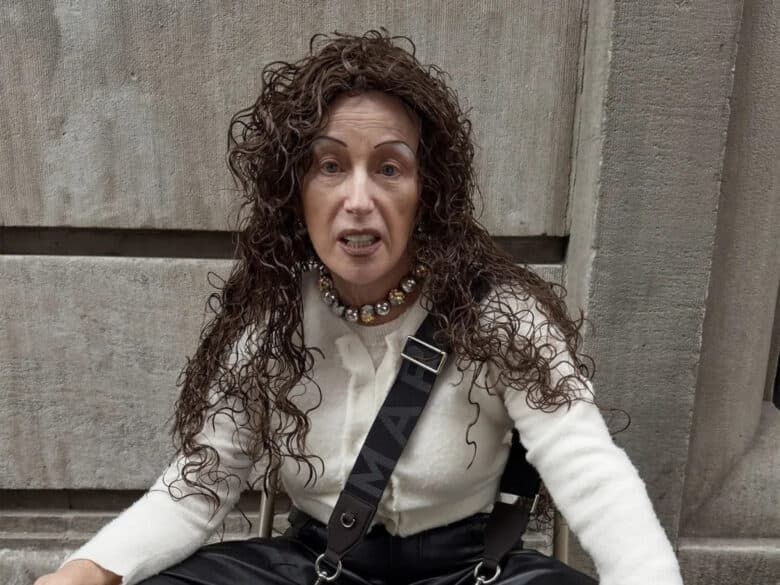Zarah Sultana: In conversation with Priya Ahluwalia
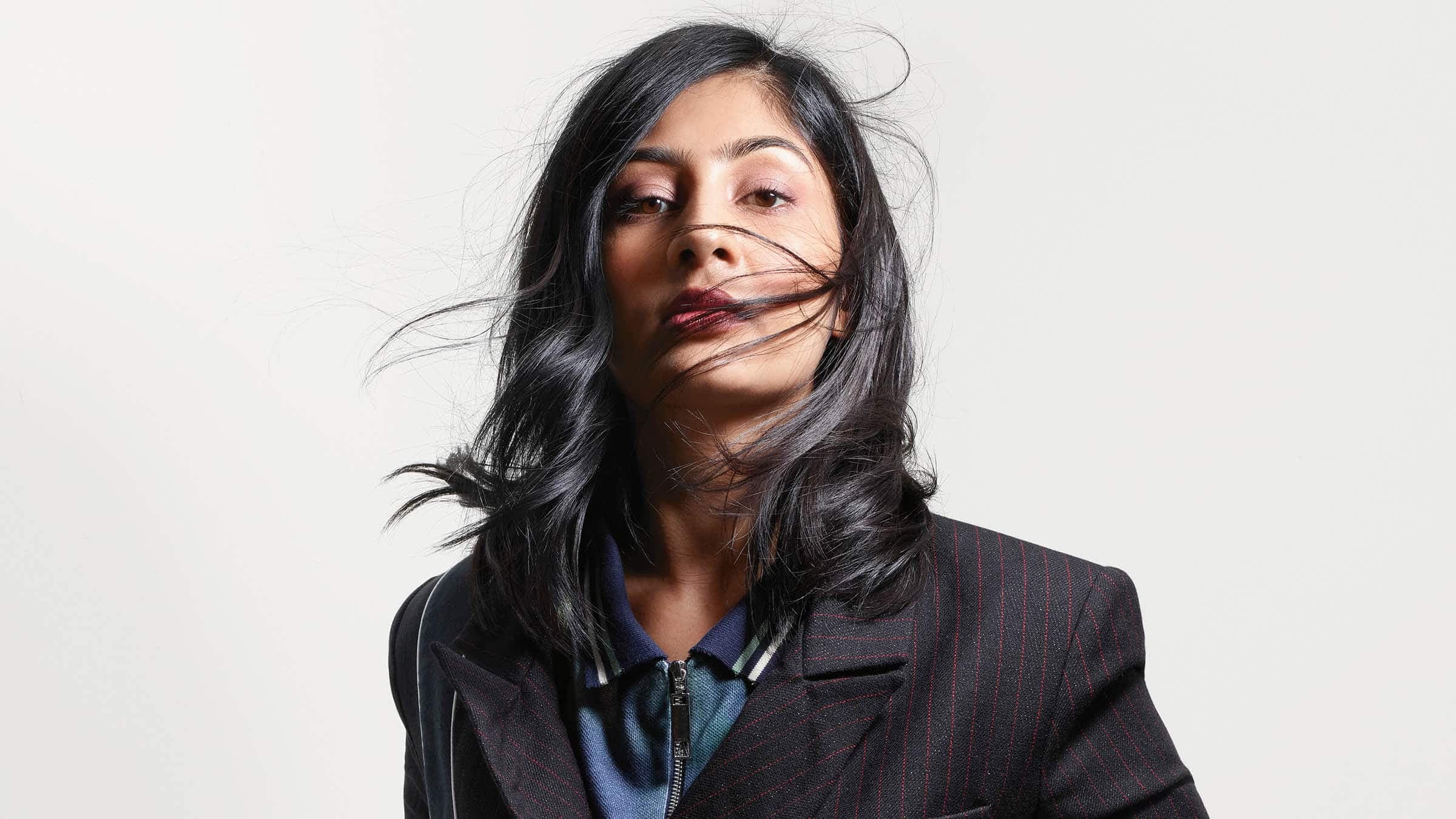
Zarah Sultana is a one-off. She can talk about boy bands and football with the same passion as the cost-of-living crisis and the climate emergency. And it’s this down-to-earth, “normal” personality that has made the young Labour MP for Coventry South a social media sensation and a much-needed voice of the people – especially young people. Here, she sits down with the designer Priya Ahluwalia, with whom she has built a mutual respect over the years, to discuss politics, protests and trusting politicians.
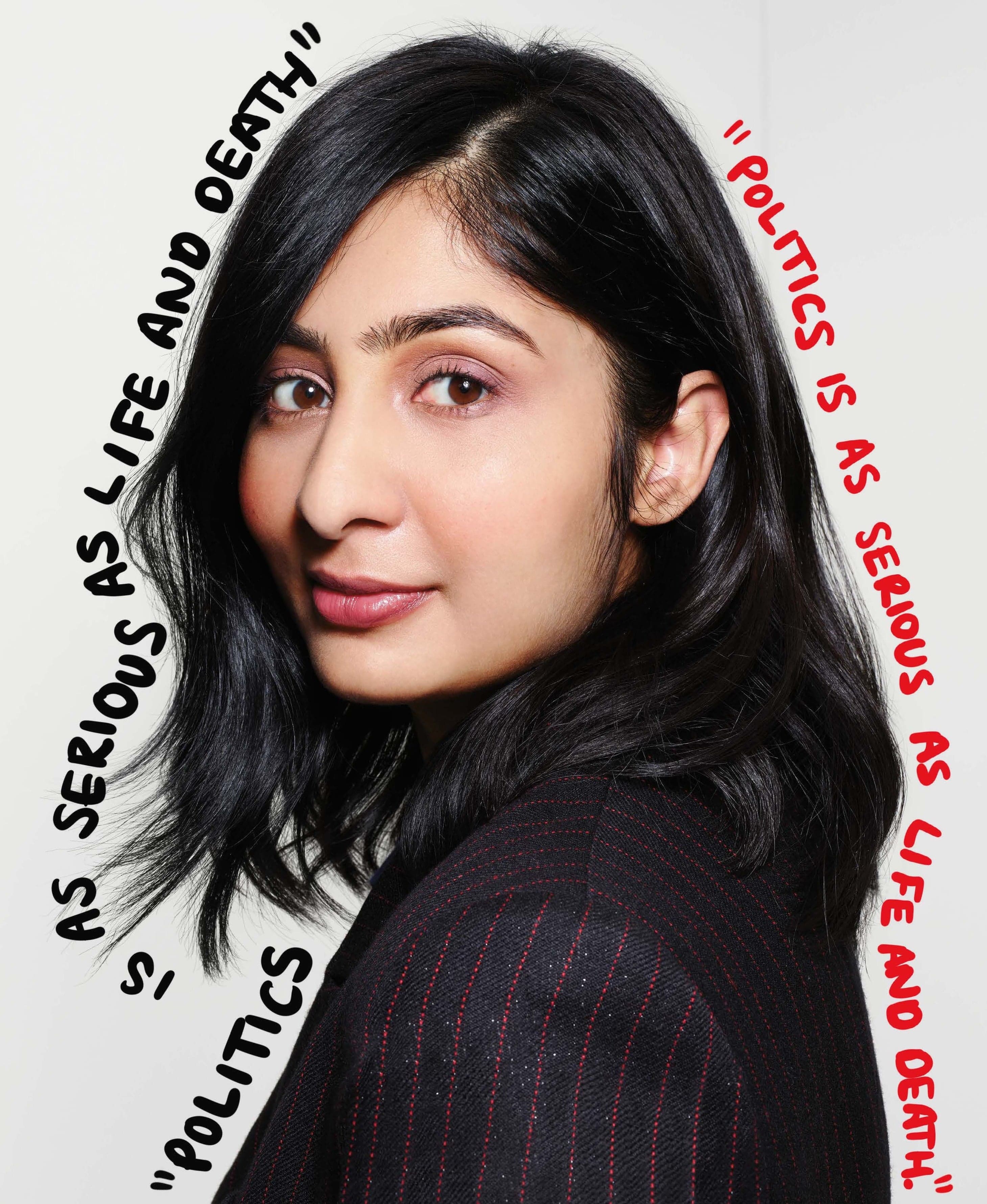
Priya Ahluwalia: You’ve probably answered this before but I’d like to hear the answer from you, if you don’t mind. It’s a big question – what made you get into politics?
Zarah Sultana: So I grew up quite political because of where I grew up, in inner-city Birmingham, and as young kids, we really felt defined by our postcode. We knew that people in positions of authority saw us in a particular way, that we were going to head towards a specific trajectory in life, no matter how hard our teachers encouraged us to get the best grades. I went to a really good school and got really good grades, but I remember a senior police officer saying that despite never having visited my secondary school, he could come in one day and all the kids would be able to say which gang they were going to end up in.
And then, while I was studying for my A-levels, the Lib Dems, who had pledged to scrap university tuition fees, entered a coalition government with the Tories and tripled them. And for me, that was quite a good example of politicians saying what they need to say, then getting into power and screwing people, particularly young people, and I really felt the impacts of that particular policy.
My first real political memory is of the protests against the Iraq War, a million people marching in London and then politicians just doing it anyway. And hundreds of thousands of young people marching against tuition fees and then politicians just doing it anyway. So I was just really angry about how we were being treated and continue to be treated. So going to university, I threw myself into student politics and the student movement around free education and anti-racism – and we touched on topics that people didn’t want to talk about, like the attainment gap between white students, Black students and other ethnic minority students, about mental health and the housing crisis, and it was just a really exciting political space and I gained a lot of education from it.
PA: I’m 29, I think we’re a similar age. I also really remember the Iraq War being well covered, and that was really a starting point for me too and I did a politics A-level to find out more. I remember being in shock that so many people were so against the war but Tony Blair still went ahead and did it. We vote for these people who are meant to essentially look after people, but our basic needs aren’t being met. It’s no surprise that so many young people don’t trust politicians.
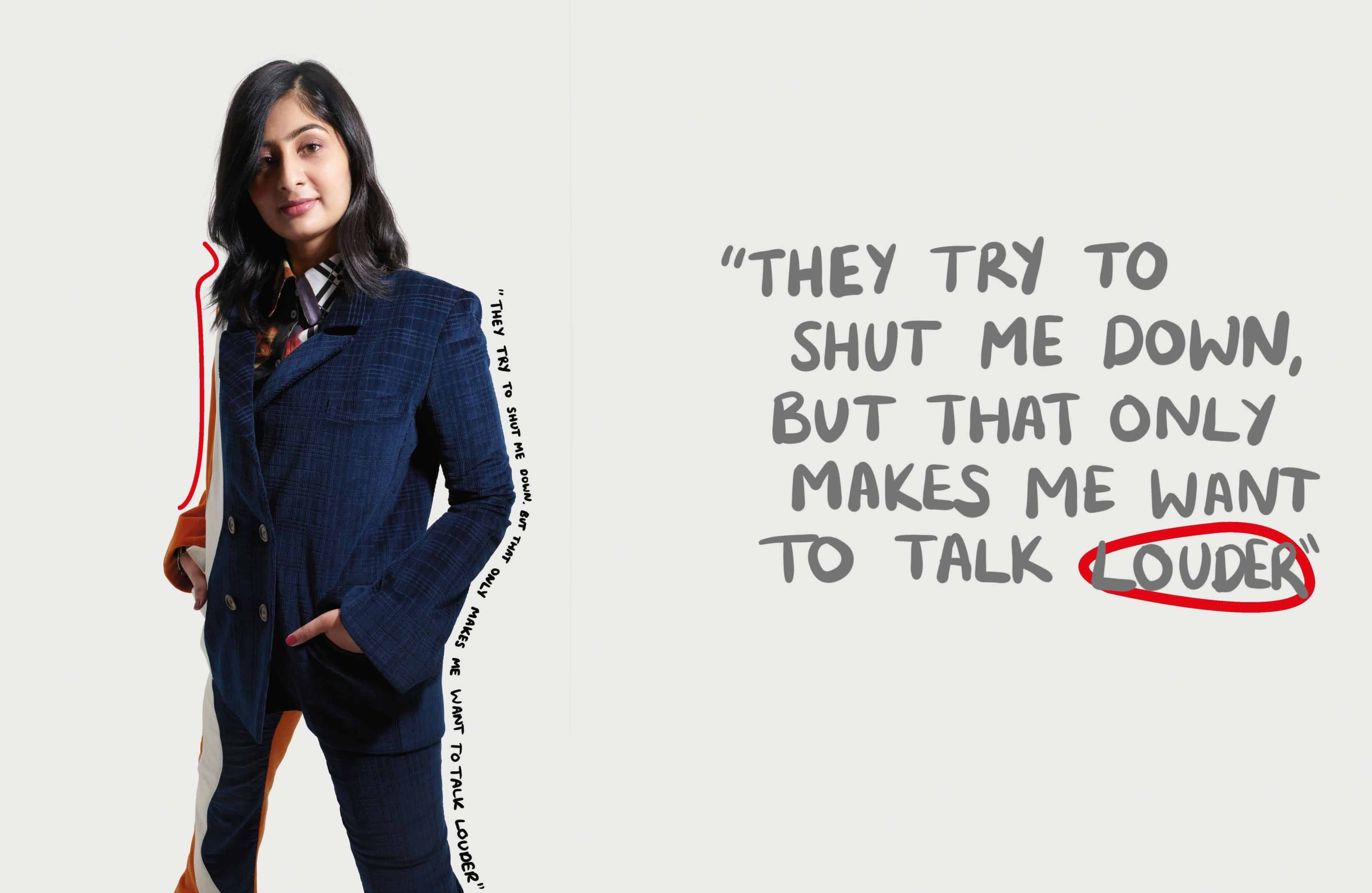
ZS: I grew up not trusting politicians and now I’m a politician and I have to address that same issue every day. And I think it’s because you get politicians who don’t come from the same backgrounds as the majority of the population. In terms of Conservative cabinet ministers, they are overwhelmingly privately educated – while only about 6% of the general population is. We have a chancellor who is on the Sunday Times Rich List. He [and his wife have] excessive wealth, not a normal level of wealth – this is about £720 million – and what that means is that [these politicians] become detached from the lives of ordinary people. There are 14 million people in our country in poverty, there are nurses and teachers having to go to food banks, and [the ministers are] just not able to put the policies in place to help those people.
And I think that, coupled with the corruption that we’ve seen with the Covid contracts… If you can make policy decisions to wipe off fraud and if you can give millions in questionable contracts to friends and family, then why can’t we feed the poorest in our country? Why can’t we make sure every kid is able to get a meal at school, that their parents get paid well, that they have a roof above their heads, that they’re able to go to university if they want to get a free education. Why can’t we guarantee that kind of life when we’re the fifth-wealthiest country in the world? And I think people see it, they know that the money exists and it’s being directed to those who already have enough.
PA: And I feel like maybe there’s a huge sense of apathy, especially after Brexit. Before Covid, the news cycle was Brexit, Brexit, Brexit, and I think it makes people so apathetic about politics that they can’t be bothered to talk about it. Maybe that’s what they want – people to not pay attention. But it does get really tiring for people, so I think there’s lots of disengagement.
ZS: I think there are a few things going on there. There are a lot of people who literally don’t have time to engage in politics because they’re working two, three jobs – they just have to focus on living and surviving and making it to the end of the week and paying their bills. And then you have all these people who probably do have the capacity to engage but they’ve seen what politicians have done to communities and to their generation and they think all politicians are the same, and they would rather engage in things like social movements or volunteering at a food bank or doing stuff around the climate emergency and not traditional mainstream party politics. And I think what happens then is that you only have a few people who will vote, and only have a few who will engage in party politics, and then it’s kind of a distortion of the reality. Loads of people don’t vote but that doesn’t mean that they don’t care about politics.
PA: I have to add that you’re very different from these same old politicians in power, who all come from the same school. We’ve engaged with each other for a few years and I have friends who are like, “Oh my God, I love her.” They look at you like they would a pop star or something. What do you think you’re doing that’s different?
ZS: I think people just see me as me. I don’t try to be anything that I’m not. I’m really trying to be authentic, trying to say that you can engage in politics and be a politician without changing the way that you speak, without being ashamed of where you come from, with being proud about your colour, with being strong and articulate about your politics and being uncompromising. And I think that is refreshing to some people because a lot of politicians might just sound like they’ve been on a conveyor belt. And then I’ve seen what austerity has done to people and what it has done to communities, and the policies that politicians have pushed through over the past 12 years have meant that people have been in such poverty and unable to get the healthcare that they need, that people have died. And that’s what this is about. Politics is as serious as life and death. I never want to have any regrets that I didn’t speak up about something that I believed in, something that was important because of some kind of calculation that someone else might make. For me, it’s just treating it as serious as it is.
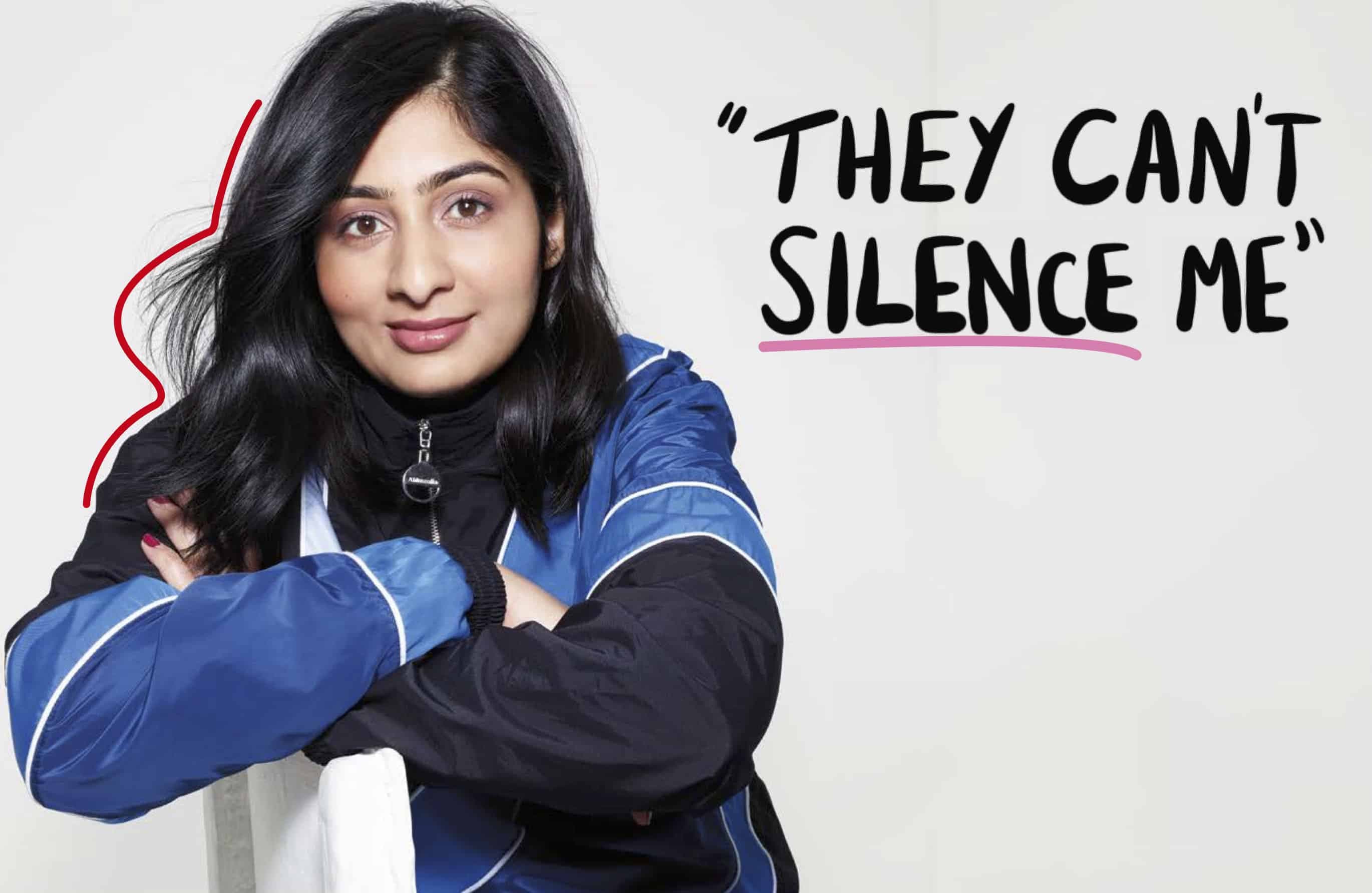
PA: I can’t think of another politician where I would learn so much about what is going on. You’re so open and always full of facts and you’re so good at helping people who are not working as well as those who are working. You’re good at communicating with people in your peer group and younger people too. But when it comes to parliamentary work and trying to make a change, there must be intense struggles.
ZS: I think it’s a combination of things. Because I’m young and the vast majority of people here are very old I have been patronised. People say, “Don’t worry, you’re young, you’ll figure things out,” as in I’ll change the way I approach this as I get older. Then there’s my race and gender – when I get heckled in the chamber when I’m speaking, loads of MPs have noticed and said to me, “The way that they treat you is very specific.” And I think that’s also because of what I’m saying. So because I’m young, I’m a woman of colour, and then because I’m basically calling them out for what they’re doing and not really being shy or subtle about it, they try to shut me down, but that only makes me want to talk louder and go for it more – they can’t silence me, because that will be their tactic working.
So there’s that in parliament and also I’ve been stopped many times on my way to vote or when I’m having my pass checked – because how many young women of colour do you see going in to vote? I’ll be mistaken for other MPs, who are other women of colour – because we’re all the same, right? It’s all the micro-aggressions.
PA: And do the aggressions spill out beyond parliament? ZS: I think also there’s the kind of response I’ve received in some of the press and on social media, and MPs across the board will speak of the kind of abuse that they get. But this doesn’t happen in a vacuum, this is because of the political arena as well. We have a prime minister who is able to break the law, get fined and it’s perfectly acceptable. He can say things about single mums, Black people, gay men, Muslim women, not feel any remorse and it emboldens people in everyday life to think that they can do the same. Whether it’s harassing women on the street or sending hate mail to their MPs.
And for me it correlates with speaking up for BLM and supporting refugees’ rights, and dealing with all of that can be tough at times. But then I’ll go out into the community and I just feel so much love and warmth. I’ll go into schools and young kids tell me that they follow me on TikTok, and it just fills my cup, and then I come to Westminster and I’m able to pour from that really.
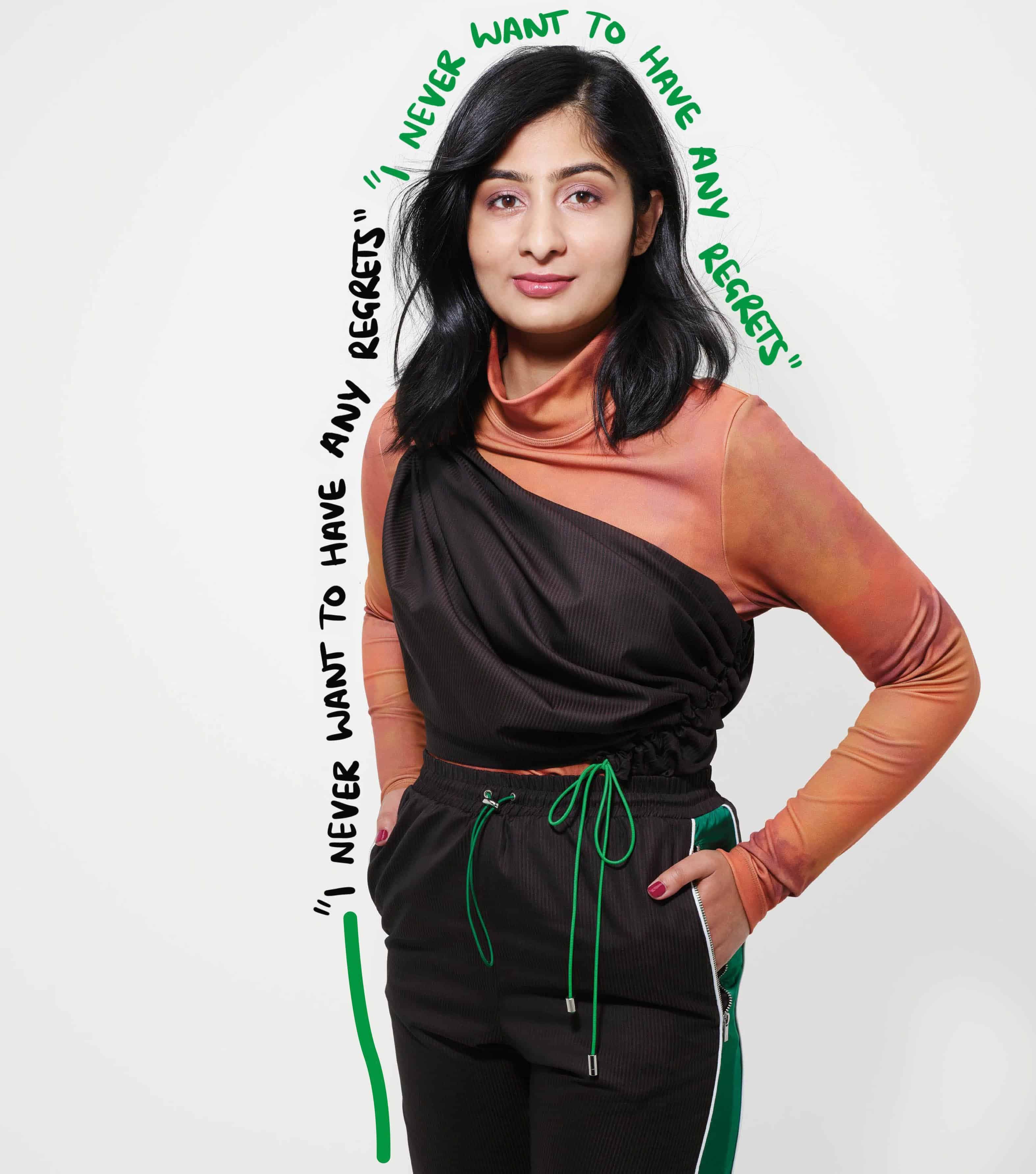
PA: Which is amazing. It’s a really good point about going out into the community and people being so inspired by you, because I don’t think many politicians drive as much enthusiasm and hope as you do. So, talking about representing your constituents and your community, what would freedom mean to you and your constituents?
ZS: I think freedom is not having to worry about whether you’re going to put food on the table or go hungry. Freedom is knowing that you are safe and secure in feeding your family and in heating your home, and then being able to enjoy life, have the green space around you to enjoy nature and being able to do so because you’re not worrying about whether you’re going to get evicted or whether you’re going to lose your job because of fire and rehire. In a big-picture way, I think of struggles across the world where people are fighting for freedom. Freedom can mean very different things to people in their everyday life but also as a collective. It’s like that quote – “Nobody’s free until everybody’s free.”
PA: Yeah, exactly that. And I think a lot of the things that make people not free in this world are rooted in white supremacy and classism, and without abolition of both of those things, people can’t truly be free – but we have seen some movement in the right direction on this and some moments of success. But then there’s the trans community, who are being really bullied, but I’m hoping that their moment for freedom and liberation will be here soon. Well, hopefully there will be a vote and maybe a Labour government in a year or two. Can we expect it to help these communities? What will change?
ZS: In the past 12 years, the Conservative government has decimated our public services and put our NHS on its knees, and we really saw that during the pandemic, and it really shone a light on a lot of these structural issues and on the lack of investment. I think a Labour government would be committed to eradicating poverty, investing in our public services, making sure people get a pay rise. I think the Labour government would be one that would empower people to be able to have a greater say over their lives and they’re committed to transforming society, and like you said supporting trans people and not throwing them under the bus, nor immigrants or any other marginalised community. I hope that’s what a Labour government will do – that’s what we stand up for and I think my role is making sure the party sticks to that.
PA: Talking about the Labour Party, and I’ve mentioned this to you before, I wish that Keir Starmer was a little more vocal, because he can fade into the background sometimes, but do you have any aspirations to be a cabinet minister or even prime minister?
ZS: At the moment I’ve got tunnel vision to just get re-elected with a bigger majority than the 401-vote margin that I got elected with. But I would absolutely love to be in a cabinet position or have more responsibility, because that’s where you can make a difference. As a backbench MP, you do have the ability to make a difference but it feels very small-scale and I feel a cabinet position allows you to have wider impact and change policy. If the opportunity comes, I would definitely be interested, but at the moment no one is knocking on my door or giving me that phone call, but I look forward to it one day!
This story appears in HUNGER Magazine’s Freedom issue.

